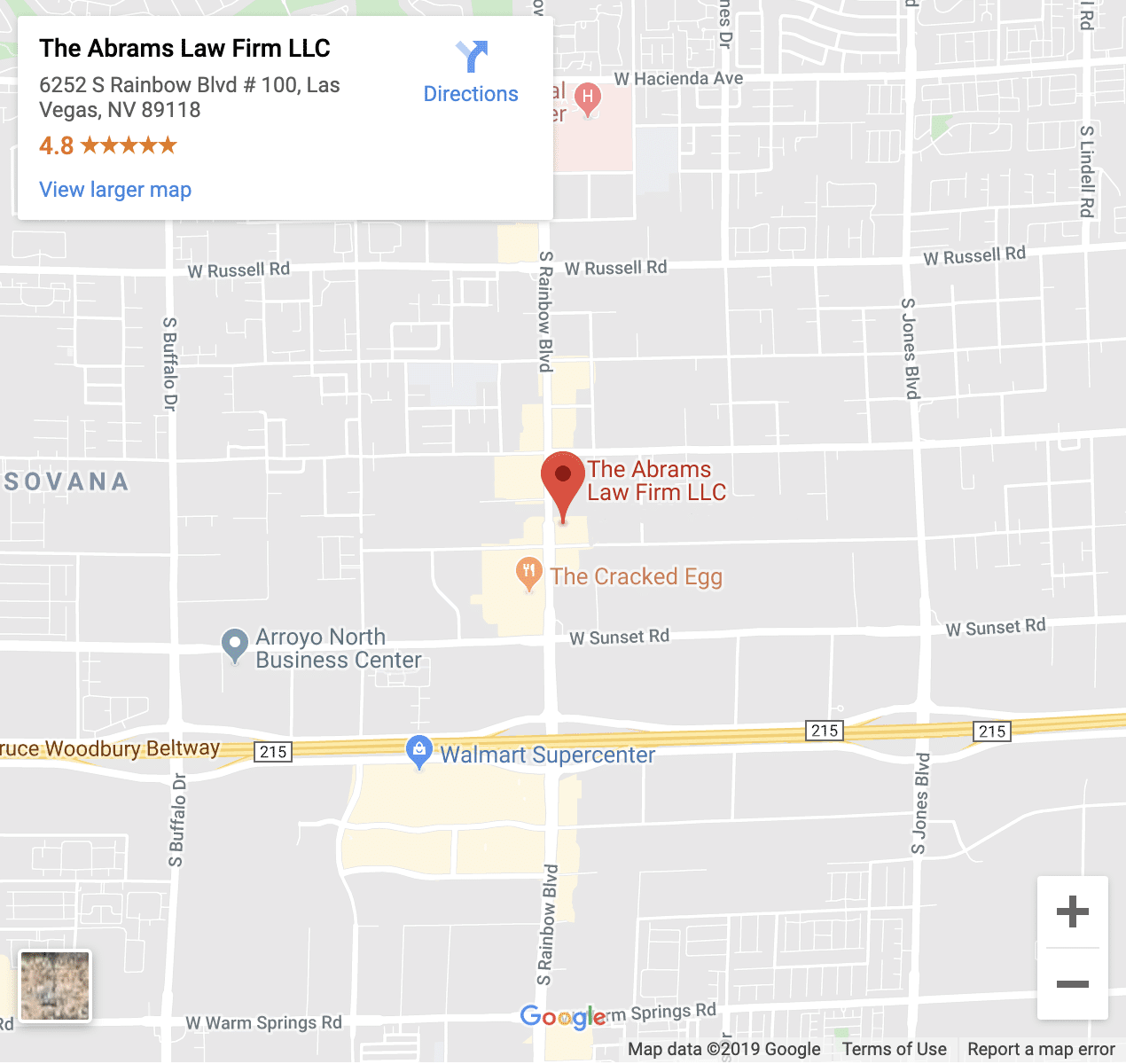
Parents Can Deny Grandparents Visitation
Grandparents do not, by default, have the absolute right to visit their grandchildren. The law presumes that parents know what is best for their children, including with whom the children will interact. If a parent or parents decide that any particular grandparent should not be allowed to visit their children, then the parents can prevent any such visitation.
Grandparents Can Petition for Visitation
While grandparents are not guaranteed the right to visit their grandchildren, they do have the right to request visitation. Nevada Law explicitly provides that grandparents can obtain a “reasonable right” to visit a child under the following circumstances:
- A parent of the child is deceased;
- A parent of the child is divorced or separated from the parent with legal custody;
- Has never been legally married to the other parent of the child, but cohabited with the other parent and is deceased or separated from the parent; or
- A parent of the child has relinquished their parental rights or have had their parental rights legally terminated.
To obtain visitation rights, when the child’s parent(s) are denying visitation, the grandparent must:
- File a petition with the family courts;
- Demonstrate that a parent of the child “has denied or unreasonably restricted visits with the child”; and
- Overcome the presumption that the child’s parents know best and it is in the child’s best interests to grant the grandparent’s right to visit.
The burden to prove that it’s in the child’s best interest for grandparent visitation is on the petitioner(s). Nevada Law presumes that when a parent denies visitation to a grandparent, that denial is in the child’s best interest. A grandparent can overcome that presumption by providing clear and convincing evidence that grandparent visitation is in the child’s best interest. Clear and convincing evidence is a concept that varies from judge to judge. Any grandparent seeking to get court ordered visitation with their grandchildren should have the legal counsel and representation of an experienced Las Vegas divorce attorney.
Weighing the Child’s Best Interest
Under Nevada Law NRS 125C.0035 covers aspects of what is in the best interest of the child. Again, this is a subjective general set of guidelines and can be interpreted differently depending on the judge in the case. When a grandparent petitions for visitation over the objection of the child’s parents or legal custodian, the grandparent must demonstrate that visitation is in the child’s best interest. The court will look at a variety of factors to weigh the child’s best interest, including the following:
- Love, affection, and ties between the child and the grandparent;
- The mental, physical, emotional, and moral fitness of the grandparent;
- The willingness and ability of the grandparent to encourage and foster a relationship between the child and the child’s parents and other relatives;
- The reasonable preference and age of the grandchild;
- Additional factors, including whatever else the court (judge) deems relevant.
Help With Grandparents Rights in Las Vegas
If you have a child custody dispute with an ex-spouse, co-parent, or concerning the rights of grandparents, reach out to a Las Vegas child custody attorney to discuss your options and your rights. Our divorce attorneys have the dedication and experience to assist you with any issue. Call 702-222-4021 to speak directly with one of them.



 Typically, the parentage of children to a marriage is clear: The married parties are the legal parents of the children. If, however, there is a question as to the identity of the biological father, or if the children are from a previous relationship, then issues of paternity might arise. In a divorce, it is important for all parties to know and establish their legal status with regards to any children. If the husband’s paternity is unknown or unclear, there could be legal consequences for the paternity issues in a Las Vegas divorce.
Typically, the parentage of children to a marriage is clear: The married parties are the legal parents of the children. If, however, there is a question as to the identity of the biological father, or if the children are from a previous relationship, then issues of paternity might arise. In a divorce, it is important for all parties to know and establish their legal status with regards to any children. If the husband’s paternity is unknown or unclear, there could be legal consequences for the paternity issues in a Las Vegas divorce.
 Child custody disputes are often emotionally-charged and complex. When one or both parents maintain a residence outside the United States or are considering relocating to a foreign jurisdiction, many additional complications are likely to arise. Below, our seasoned
Child custody disputes are often emotionally-charged and complex. When one or both parents maintain a residence outside the United States or are considering relocating to a foreign jurisdiction, many additional complications are likely to arise. Below, our seasoned 
 Decisions about raising children can be difficult even in the best of times, and different views on religion, especially so. When parents are divorced, finding a compromise position about how to raise the children can be more so. If divorced parents fundamentally disagree about the religious upbringing of their children, who gets to decide what happens? Can both parents do their own thing, or can one parent actually stop the other from imposing their views? We discuss divorced parents and their children’s religious upbringing in the article below.
Decisions about raising children can be difficult even in the best of times, and different views on religion, especially so. When parents are divorced, finding a compromise position about how to raise the children can be more so. If divorced parents fundamentally disagree about the religious upbringing of their children, who gets to decide what happens? Can both parents do their own thing, or can one parent actually stop the other from imposing their views? We discuss divorced parents and their children’s religious upbringing in the article below.